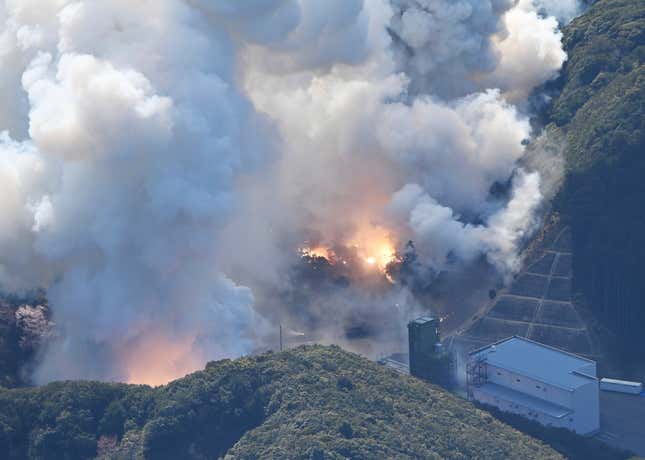ARTICLE AD
The inaugural launch of Space One’s Kairos rocket ended in failure, with the launch vehicle exploding mere seconds after clearing the tower in Wakayama prefecture. It’s a setback for Japan’s space sector, which is striving for competitiveness in the burgeoning aerospace industry, but commercial ventures rarely achieve success on their first attempts.
How Isolation Plays a Role in Space Exploration
Tokyo-based Space One will have to wait in its attempt to become the first Japanese firm to place a satellite in orbit. Launching at 10:01 p.m. ET on Tuesday, March 12 (11:01 a.m. Japan Time on Wednesday, March 13) from Space One Launch Pad at Space Port Kii, the 59-foot (18-meter) rocket exploded five seconds into its maiden voyage. Video of the failed launch showed a gigantic fireball and smoke amid a scenic background, with debris falling onto the mountainous, forested terrain below.
As the Associated Press reports, no injuries were reported and the ensuing fire was quickly brought under control.
The light-lift launch vehicle was on a mission to deploy an experimental satellite for the Japanese government’s Cabinet Satellite Intelligence Center. AP says this satellite was primarily tasked with monitoring military facilities in North Korea, and, as Reuters notes, it was also meant to serve as a temporary replacement for any intelligence satellites that may go offline.
Kairos’ automated self-destruct system kicked in five seconds into the launch, for reasons that aren’t yet clear. “The rocket terminated the flight after judging that the achievement of its mission would be difficult,” company president Masakazu Toyoda told reporters. The highly automated launch system likely detected anomalies in the flight trajectory, speed, or control systems—errors that could’ve endangered people on the ground.

Fire and smoke from the fallen rocket. Photo: Yomiuri Shimbun/Keita Iijima (AP)
It’s a setback for Japan’s space aspirations, as the nation strives to keep pace with the U.S. and China in the new space race. Despite being a smaller contender, Japanese rocket developers are seeking to develop more cost-effective launch vehicles. This effort aims to meet the increasing demand for satellite launches, both from the Japanese government and international clients. Japan’s space agency, JAXA, has also experienced delays, but recently launched its new H3 rocket on the second attempt.
Space One, founded in July 2018, aims to actively compete with major players like SpaceX and Rocket Lab. In this competitive landscape, Kairos is showing potential with a model that closely resembles Rocket Lab’s Electron rocket, which has flown on 41 successful missions to date.
The three-stage Kairos rocket, equipped with solid-fuel engines and a liquid-fuel post-boost stage, is designed to deliver payloads of up to 550 pounds (250 kilograms) to low Earth orbit. The company, bolstered by investments from Canon Electronics, IHI Aerospace, Shimizu Corporation, and the Development Bank of Japan (among many other banks), aims to launch 30 rockets annually by the 2030s, according to Kyodo News. As CNBC reports, shares of Canon Electronics fell by nearly 13% earlier today, in what is a likely investor response to the failed launch.
Investor nervousness aside, it’s exceptionally rare for a company to place a satellite in orbit on its first attempt. Toyoda informed reporters that the company is “taking what happened in a positive way,” emphasizing the importance of “new data and experiences” in achieving success. Space One is now investigating the incident.
For more spaceflight in your life, follow us on X and bookmark Gizmodo’s dedicated Spaceflight page.

 9 months ago
56
9 months ago
56 

